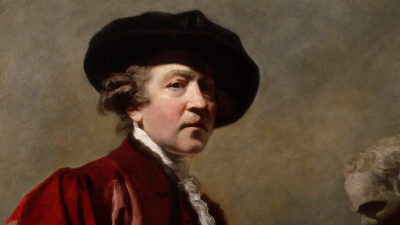Our pick of this week’s art events: 6 – 13 May
Our pick of this week’s art events: 6 – 13 May
By Daisy Schofield
Published 6 May 2016
The National Gallery unveils work by its artist in residence, while a show at Tate explores the relationship between British art and photography. We pick the week’s best shows.
-
Bill Jacklin
Marlborough Fine Art, London, 6 May – 7 June
This exhibition of Bill Jacklin RA’s work will coincide with a solo show of his graphic works at the Royal Academy, and the publication of two books celebrating the artist’s lengthy and varied career. A 1967 graduate of the Royal College of Art, Jacklin began working as an abstract artist, but soon turned his attention to representation and typically painting urban street scenes, emphasising patches of light with loose brushwork, redolent of Impressionism. The glimmering, glowing appearances of his New York paintings blur the line between dream-like imaginings and a faithfully captured insitu recording.
-

Bill Jacklin RA, Umbrella Crossing, 2016.
Oil on Canvas. 60 x 66 cm. Miggs Burroghs. Courtesy of the artist and Marlborough Fine Art, London.
-
Painting with Light
Tate Britain, London, 11 May – 25 September
This exhibition at Tate Britain is the first major one of its kind to consider the significant dialogue between early photography and British art over the course of a 75-year period. From the earliest stages of the exhibition’s focus, the profound effect photography had on painters and vice versa is epitomised by Turner’s naturalism, and correspondingly, his role in inspiring the first photographic, panoramic views. By also mediating on some of the great gems of impressionism and the Pre-Raphaelite era, this exhibition draws out the fundamental qualities that unite two disparate mediums.
-

John Singer Sargent, Carnation, Lily, Lily, Rose, 1885-86.
Oil paint on canvas. 1740 x 1537 mm. Tate. Presented by the Trustees of the Chantrey Bequest 1887.
-
George Shaw: My back to Nature
The National Gallery, London, 11 May – 30 October
After two years of serving as the National Gallery’s artist in residence, George Shaw unveils a selection of works that reflect the recurrent woodland theme in the collection. Although retaining the same medium of enamel paint, Shaw deviates from the gritty suburban scenes which led to his initial fame and subsequent 2011 Turner Prize nomination. In this series the rural world takes centre stage, yet urban life still permeates through the abandoned rubbish strewn across the woodland floor. The works serve as a jarring contemporary comparison to the lush mythological backdrops found in the paintings of Titian and Poussin which feature alongside Shaw’s in the exhibition.
-

George Shaw, The Rude Screen, 2015-2016.
Enamel on Canvas. 178.5 x 198 cm. © Courtesy : The Artist and Wilkinson Gallery, London.
-
Abstracting from Nature
Connaught Brown, London, until 2 July
Abstracting from Nature hones in on a time when artists were posed with the uncertain task of representing the world following the horrors of World War Two. Nature felt at once harmonious and trauma-stricken; a contradiction which reveals itself when considering the combination of organic shapes with areas of tension in works such as Henry Moore’s Three Points and Antoine Poncet’s Born. There is also a transcendental quality in the colourful canvases of Kandinsky and Poliakoff, showing a breadth of responses to an overarching dilemma.
-

Henry Moore, Three Points, 1939-40.
Numbered ‘3/8 A’ and stamped with the foundry mark ‘Susse Fond. Paris‘Edition of 8 plus 2 AP.
Bronze. 13.5 x 19 cm. Courtesy Connaught Brown, London..
-
Antony Cairns: OSC - Osaka Station City
Roman Road, London, until 3 June
Antony Cairns’s highly experimental approach to photography, which verges on painterly, creates novel and intriguing perspectives of unexceptional urban settings. In this particular series on view at Roman Road, Osaka serves as the focus, with images rendered in black-and-white film, part-developed, solarized and then redeveloped before being printed onto aluminum sheet. The result is a simultaneously striking and poetic retelling of Cairn’s residency in the metropolis.
-

Antony Cairns, OSC55, 2015.
Unique.
49.7 x 74.7 cm. Courtesy of Roman Road and the artist. © Ollie Hammick.








